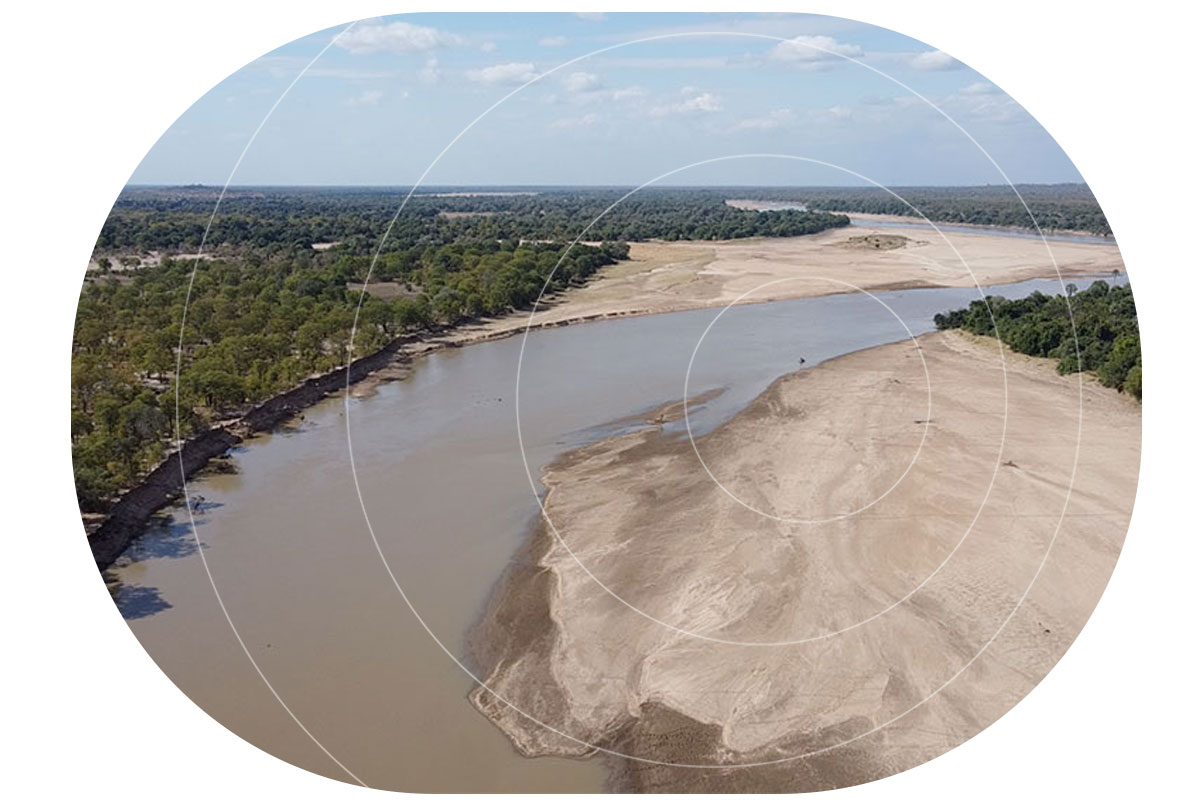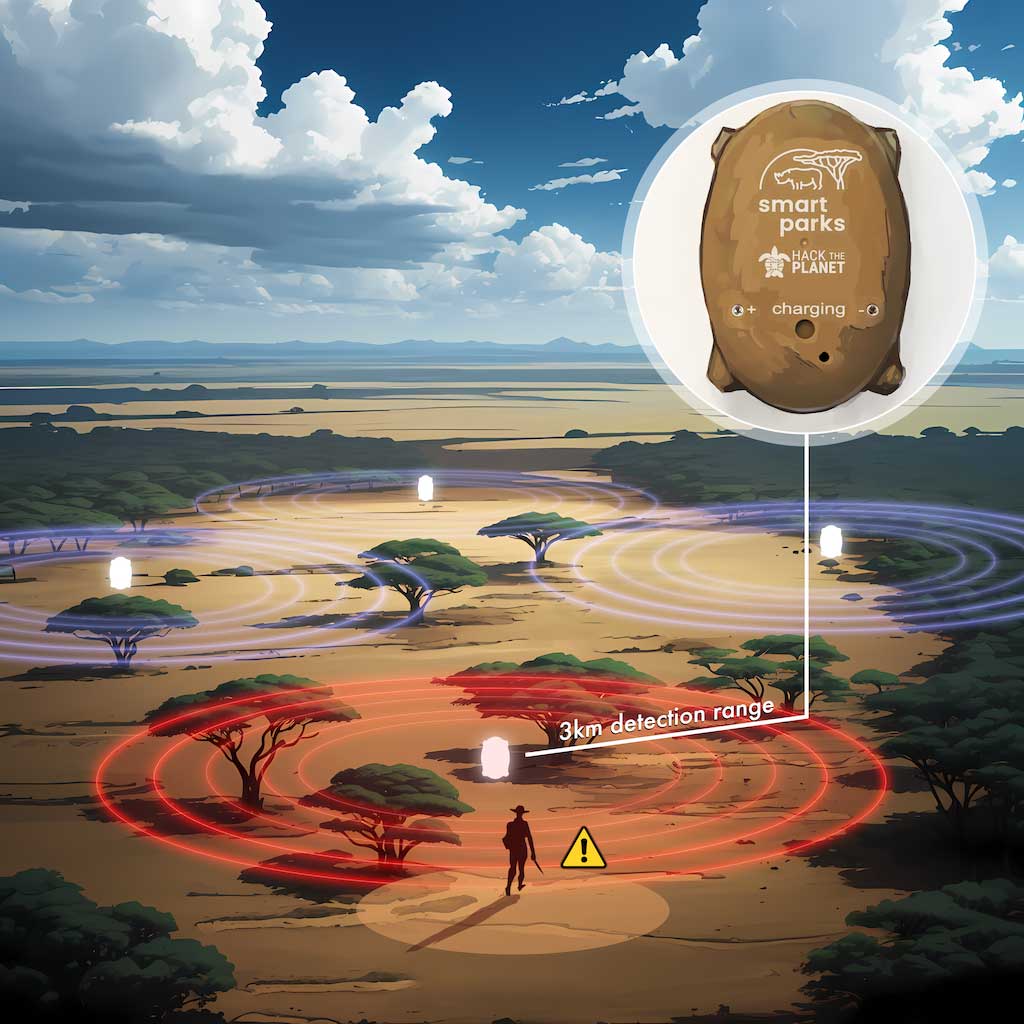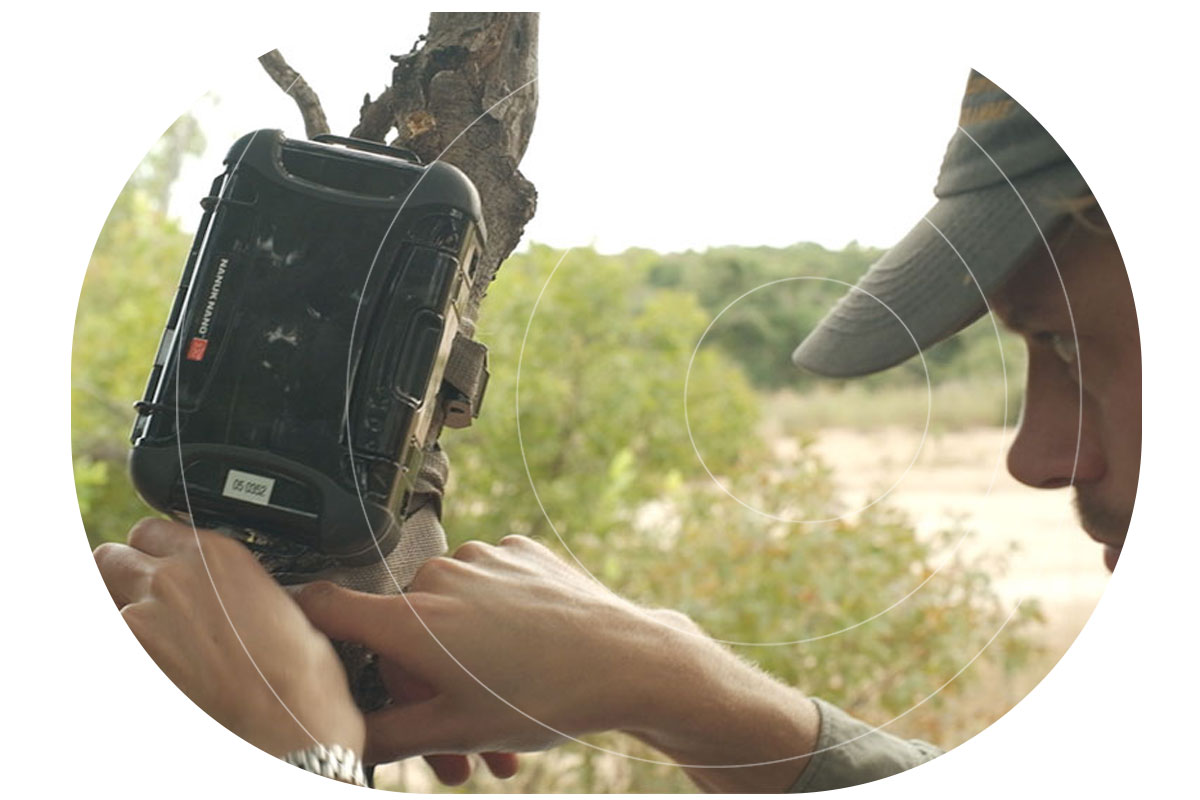Hack the Planet is a non-profit organization dedicated to using advanced engineering and technology to address critical global challenges. They work on projects that have a positive social and environmental impact, collaborating with various partners like Greenpeace, WWF, and other conservation organizations. The team is a part of the digital product studio Q42, which provides them with access to a large pool of engineers to bring their ideas to life.


Combating Illegal Poaching Activities Within Zambia's National Parks
Poaching is a significant threat to wildlife, particularly in regions with endangered species. Hack the Planet’s services were engaged to find a solution for monitoring and preventing poaching in Zambia’s National Parks. Traditional methods are often resource-intensive and limited in their effectiveness, especially in vast, remote areas where quick response times are critical.
To overcome the challenge of connectivity in these remote areas, the team needed a reliable communication system to ensure that detection data could be transmitted in real-time to park rangers. This is where Ground Control’s services became crucial, providing satellite connectivity that ensured that the sensors could communicate effectively.
Tackling the Problem
To mitigate poaching, Hack the Planet needed a way to detect unauthorized human presence in national parks, specifically the presence of individuals who might be involved in poaching activities.
The solution had to be reliable, able to cover large areas, and operate in environments with limited connectivity.
A key technical hurdle was ensuring that the team’s sensors could communicate data from remote locations to park rangers in real-time.
Hack the Planet developed sensor technology that detects the presence of cell phones in areas where they shouldn’t be, such as within national parks.
These sensors are strategically placed throughout the park and are capable of detecting signals from cell phones carried by individuals within a 3km radius, even in remote areas.
When a cell phone is detected, the sensor immediately relays this information to park rangers, who can then investigate and take action to prevent potential poaching incidents.


The Role of Satellite IoT
Ground Control played a crucial role in enabling the real-time communication of Hack the Planet’s sensors by providing satellite connectivity through our RockBLOCK satellite modem.
This technology allows the team’s sensors to transmit data from remote areas of the park, where there is no cellular network coverage, to a central monitoring station.
This connectivity ensures that park rangers can receive alerts and respond swiftly, significantly improving the effectiveness of the anti-poaching efforts.
“This ongoing collaboration with Ground Control and other partners is pivotal to our mission of using technology to protect endangered species and preserve biodiversity across the globe.”
Thijs Suijten – Hack the Planet
Expanding the Project’s Reach
Looking ahead, Hack the Planet aims to expand this anti-poaching project to other national parks and regions facing similar challenges. They’re also exploring the potential of integrating additional technologies, such as AI-powered analytics, to enhance the accuracy and efficiency of their detection systems.
To contact Thijs and the Hack the Planet team, visit https://www.hack-the-planet.io/contact or email info@hack-the-planet.io.
Can we help to solve your connectivity challenge?
If you have a project that’s limited by cellular coverage, we can help. We work with multiple satellite network operators and networking technologies to ensure our customers get the right combination of coverage, cost and reliability.
Please complete the form to tell us more about your project, or email the team at hello@groundcontrol.com. We’d love to help.
